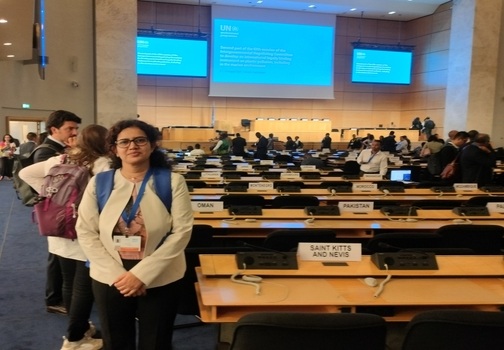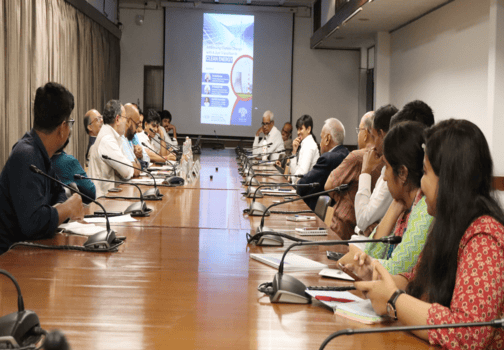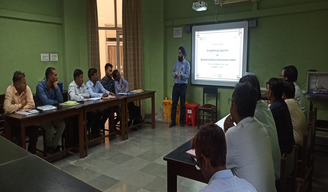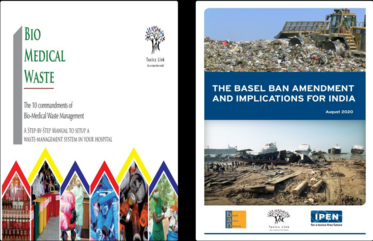ANTIMICROBIAL RESISTANCE (AMR) IN THE COUNTRY
GOVERNMENT OF INDIA
MINISTRY OF HEALTH AND FAMILY WELFARE
DEPARTMENT OF HEALTH AND FAMILY WELFARE
RAJYA SABHA
UNSTARRED QUESTION NO. 2841
TO BE ANSWERED ON 25.03.2025
ANTIMICROBIAL RESISTANCE (AMR) IN THE COUNTRY
2841 SHRI JOSE K. MANI:
Will the Minister of HEALTH AND FAMILY WELFARE be pleased to state:-
(a) the steps Government is taking to control antimicrobial resistance (AMR) in the country;
(b) whether there is any plan to regulate the sale of antibiotics and ensure that prescriptions are mandatory for their purchase; and
(c) the awareness campaigns Government is running to educate the public and healthcare professionals about AMR?
ANSWER
THE MINISTER OF STATE IN THE MINISTRY OF HEALTH & FAMILY WELFARE
(SHRI PRATAPRAO JADHAV)
(a) Government of India has taken various steps to address the issue of AMR, is at Annexure.
(b) Ministry of Health and Family Welfare (MoHFW) has taken various regulatory measures to monitor and regulate antibiotic prescriptions, especially for over-the-counter sales:
(i) MoHFW launched Red Line awareness campaign on Antimicrobials Resistance, urging people not to use medicines marked with a red vertical line, including antibiotics, without a doctor’s prescription.
(ii) Antibiotics are included in Schedule H and H1 of the Drugs Rules, 1945. These drugs have specific caution labeling requirements and are sold only under the prescription of a Registered Medical Practitioner.
(iii) Government has issued National Treatment guidelines for judicious use of antibiotics. The Guidelines on Infection Prevention and Control aims at prevention and control of healthcare associated infections to reduce the use of antibiotics in healthcare settings. Above can be accessed at https://ncdc.mohfw.gov.in/antimicrobial-resistance-amr-containment/
(c) Awareness generation materials on AMR includes posters, videos, radio jingles on judicious use of antibiotics and on prevention of infections through hand hygiene and made available for use by stakeholders. The media material in 12 local languages have also been developed for dissemination of AMR related information and shared with States & UTs. National programme on AMR Containment conduct activities to raise awareness on AMR among health care workers and community during World Antibiotic Awareness Week (WAAW) held every year.
Annexure-I
ANNEXURE REFERRED TO IN REPLY TO PART (a) OF THE RAJYA SABHA
UNSTARRED QUESTION NO. 2841 REGARDING ” ANTIMICROBIAL RESISTANCE (AMR) IN THE COUNTRY”
• MoHFW has initiated “National Programme on Antimicrobial Resistance Containment”. Under this programme State medical college labs are strengthened in phased manner for AMR surveillance and containment activities.
• 50 State medical colleges in 33 States/UTs are covered under the National AMR surveillance Network (NARS-Net).
• Capacity building of the labs on basic procedures in Bacteriology across the network has also been done. Various SOPs have been developed which are updated on regular basis, and all the sentinel site laboratories are provided training on the use of these SOPs. Other activities carried out for quality improvement include onsite support visits, trainings and review meetings conducted on regular basis.
• Training is provided on AMR data management using the WHONET software. Sites are trained to develop antibiogram based on local antimicrobial susceptibility data to support judicious use of antibiotics.
• The quality of data submitted under the National AMR surveillance network is ensured through External Quality Assessment Scheme (EQAS) conducted by NCDC, under which all network sites submit isolates every quarter (as per programme guidelines) to the National Reference Laboratory established at NCDC.
• Support has been provided to 3 States to strengthen State AMR Surveillance Networks and to 6 additional States to establish State level AMR surveillance networks.
• India enrolled onto Global AMR Surveillance System (GLASS) in 2017, and since 2018 National AMR surveillance data from NARS-Net submitted onto GLASS.
• AMR National Reference Laboratory (NRL) for bacterial pathogen and fungal pathogen has been established at NCDC, Delhi and Vallabhbhai Patel Chest Institute, Delhi respectively. The NRLs are conducting EQAS and AMR Alert confirmation of the isolates submitted quarterly by the sites.
• National Guidelines for Infection Prevention and Control in Healthcare Facilities have been developed and uploaded on NCDC website.
• NCDC has conducted State level IPC training of trainers from different States/ UTs in 3 batches. The trainers cascades these trainings in their respective States to implement IPC measures in various healthcare facilities.
• National action plan on containment of Antimicrobial Resistance (NAP-AMR) has been launched which aims to address the growing threat of antimicrobial resistance in India through multi-sectoral approach, focusing on improving awareness, strengthening surveillance and optimizing antimicrobial use.






